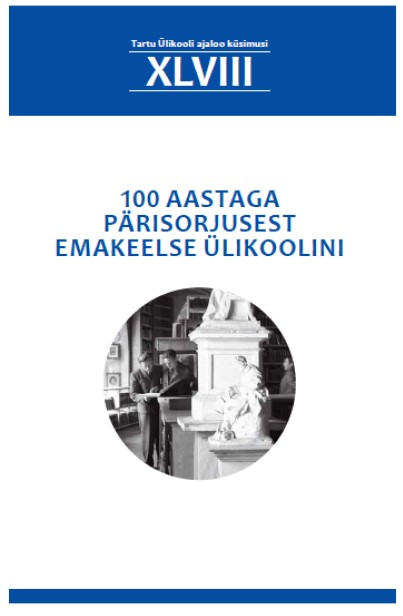"See on tõepoolest häbiväärne, et meie eestlastel on rohkem mõistust kui meie sakslastel"
"It is truly disgraceful that Estonians have more sense than our Germans"
DOI:
https://doi.org/10.15157/tyak.v48i48.16887Abstract
In the final decade of the 19th century, the temperance movement was
gaining ground fast in the Estonian society. The same could not be
said about the local elite, the Baltic Germans. The reluctance of the
‘genteel folk’ is noteworthy, if only for the reason that Gustav Piers
von Bunge (1844–1920), one of the leading proponents of the medical
temperance movement at the turn of the century, was one of their
own, although he spent most of his life at the University of Basel
in Switzerland. Bunge tried to spread his progressive ideas about
healthcare in his homeland, encouraging the Baltic Germans to follow
the example of Estonians and Latvians. Baltic German women
were the first to embrace temperance. On the cusp of World War I,
the local German medical professionals started to pay more attention
to the idea, but remained more moderate in comparison to Bunge,
declaring that each individual should decide for themselves whether
they imbibe alcohol or not. In conclusion it can be claimed that the
Baltic German’s reticence towards temperance arose from the economic
losses this caused to their circles (the state’s vodka monopoly
did away with the right to keep taverns), but especially from the political
background of the temperance movement. The Estonian temperance
movement had an important role in this, as it became a part
of the national agenda.

